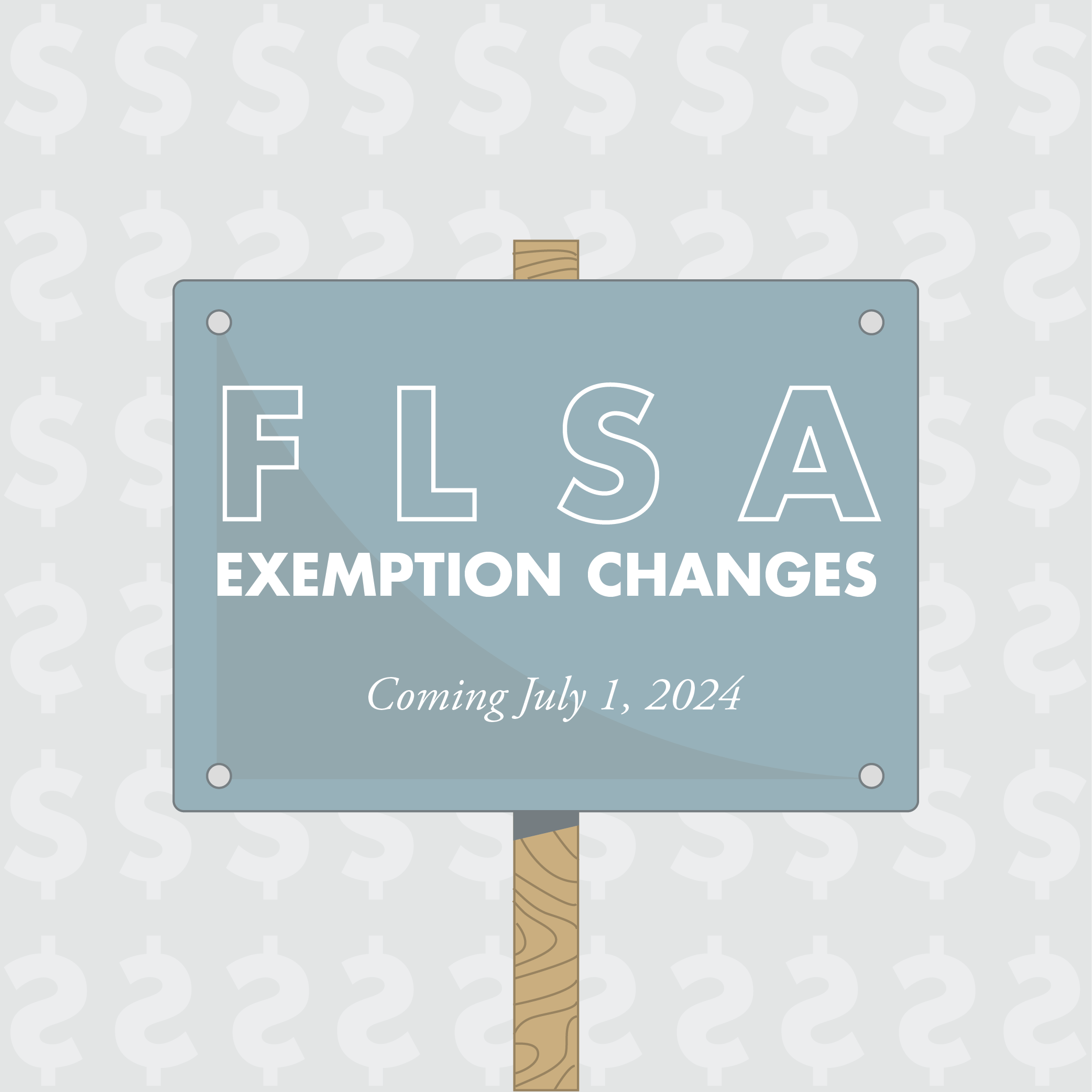A federal court in Texas issued a nationwide injunction setting aside a Department of Labor regulation increasing salary thresholds for the white collar exemption and highly compensated employees set to go into effect on January 1, 2025. The salary thresholds had increased on July 1, 2024 and were set to increase again on January 1, 2025 with automatic increases every three years.
...Read MoreShannon Middleton
As an update to our previous blog posts (FTC Bans Noncompetes and Noncompete Update), the Federal Trade Commissions' non-compete rule has been enjoined.
Just two weeks before the Federal Trade Commission's ("FTC") rule to federally ban non-competes was to go into effect (the "Final Rule"), on August 20, 2024, a Texas federal judge issued a nationwide injunction which barred the implementation of the Final Rule. The court held that the FTC lacked statutory authority to adopt the Final Rule and creation of the Final Rule was an unlawful agency action by the FTC.
...Read MoreWe previously prepared a blog post to notify businesses of the new Federal Trade Commission rule banning noncompete clauses effective September 4, 2024 (“Effective Date”). While we are still watching legal challenges to the rule, if it goes into effect on the Effective Date, employers must have taken action to notify workers of unenforceable non-compete clauses before the Effective Date.
Gutwein Law is ready to help you prepare for the new rule. We have created a checklist to assist your business with analyzing existing policies and agreements and determining notice recipients. We recommend businesses consult with us to begin these preparations, draft the required notices, and coordinate the timing for sending the notices given the pending legal challenges. Please reach out to us to discuss these important preparations.
...Read MoreEmployers should review their salary levels for exempt employees in preparation for a new rule effective July 1, 2024.
The Fair Labor Standards Act ("FLSA") has certain exemptions available from minimum wage and overtime pay. For the white collar exemptions (executive, administrative, and professional employees), the annual salary threshold is increasing from $35,568 ($684/week) to $43,888 ($844/week) on July 1 and again on January 1, 2025 to $58,656 ($1128/week). The duties test and salary basis test to qualify for the executive, administrative, or professional exemption are not changing and still need to be met in order to qualify for these exemptions.
...Read MoreOn Tuesday, April 23, 2024, the Federal Trade Commission (“FTC”) issued a rule banning most non-compete clauses in the United States. Lawsuits have already been filed to challenge the rule. However, businesses should prepare for the rule to go into effect 120 days after publication in the Federal Register (“Effective Date”), which is expected soon.
A non-compete clause is a term or condition of employment that prohibits a worker from, penalizes a worker for, or functions to prevent a worker from: (i) seeking or accepting work with a different person after the employment has ended; or (ii) operating a business after the employment has ended. Non-compete clauses can be part of a written or oral agreement, such as an employment agreement, separation or severance agreement, confidentiality and nondisclosure agreement, or as part of a workplace policy, such as in an employee handbook.
...Read MoreAuthor Archive
- Gutwein Law (43)
- Stuart Gutwein (21)
- Andy Gutwein (18)
- Shannon Middleton (17)
- Corben Lee (6)
- Brian Casserly (6)
- Uzair Farooq (6)
- Audrey Wessel (6)
- Sean Farrell (6)
- Tessa Doyle (5)
- Greg Geiser (4)
- Sean McCarthy (4)
- Tessa Steffens (4)
- Karen Young (4)
- Josh Schaub (4)
- Jackie Gessner & Tessa Steffens (3)
- Hayes Cronk (3)
- Tyler Droste (3)
- Joe Delehanty (2)
- Tommi Perdue (2)
- Kaylin Cook (2)
- Shannon Middleton & Karen Young (2)
- Krysta Schilling (2)
- Sophia Khan (2)
- Travis Stegemoller (2)
- Brian Casserly & Cecelia Harper (2)
- Rachel Bir (2)
- Brooke Perez (2)
- Klein Allison (2)
- David Roberts (2)
- Lauren Schrader (1)
- Mitch Bruno (1)
- Andy Gutwein & Laura Vogler (1)
- Brian Casserly & Hayes Cronk (1)
- Chris Shelmon (1)
- Michael Hartman (1)
- Travis Stegemoller & Corben Lee (1)
- Dan Gosnell (1)
- Shannon Starr (1)
- Sheanna Morgan (1)
- Travis Stegemoller & Tyler Droste (1)
- Sierra Murray (1)
- Patrick Fagan (1)
- Stuart Gutwein & Chris Shelmon (1)
- Brian Casserly & Mitch Bruno (1)
- Wes Zirkle (1)
- Chelsie Henderson (1)
- Shannon Middleton and Tyler Droste (1)



